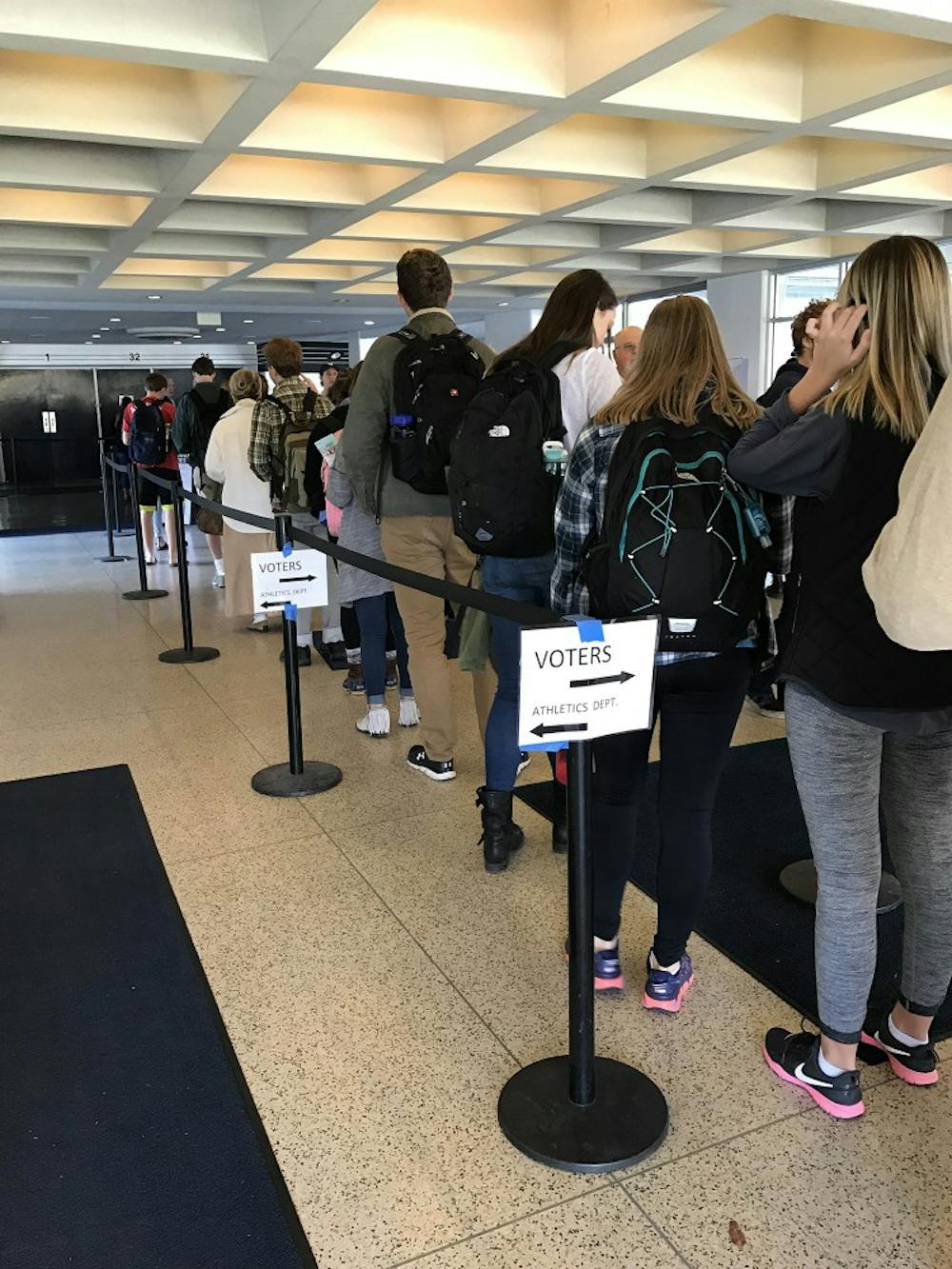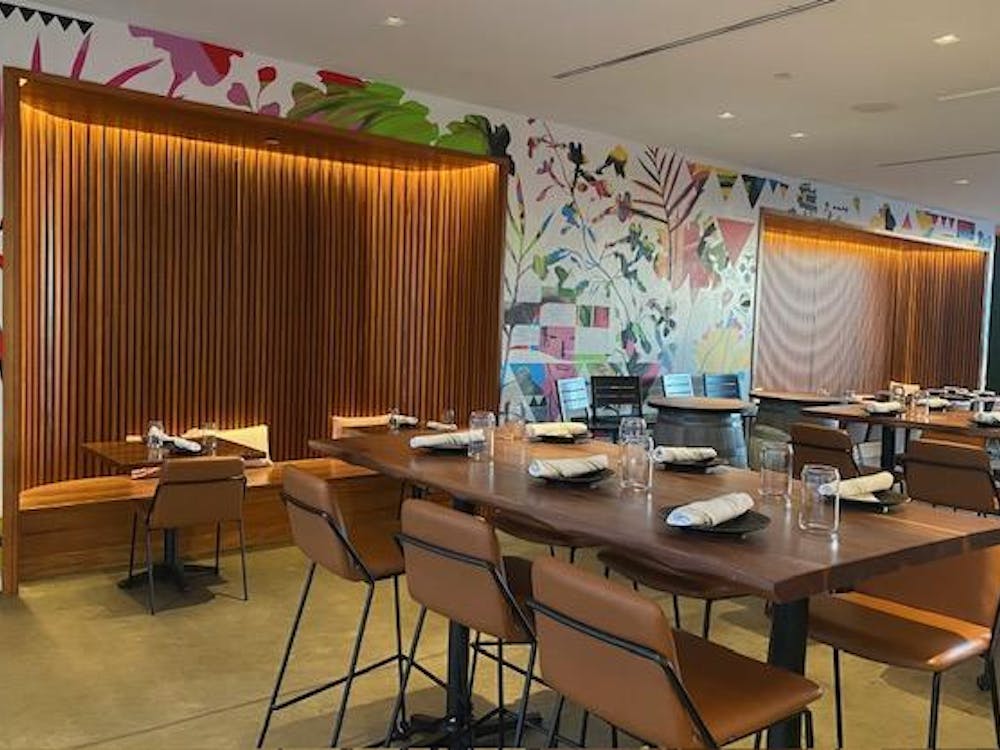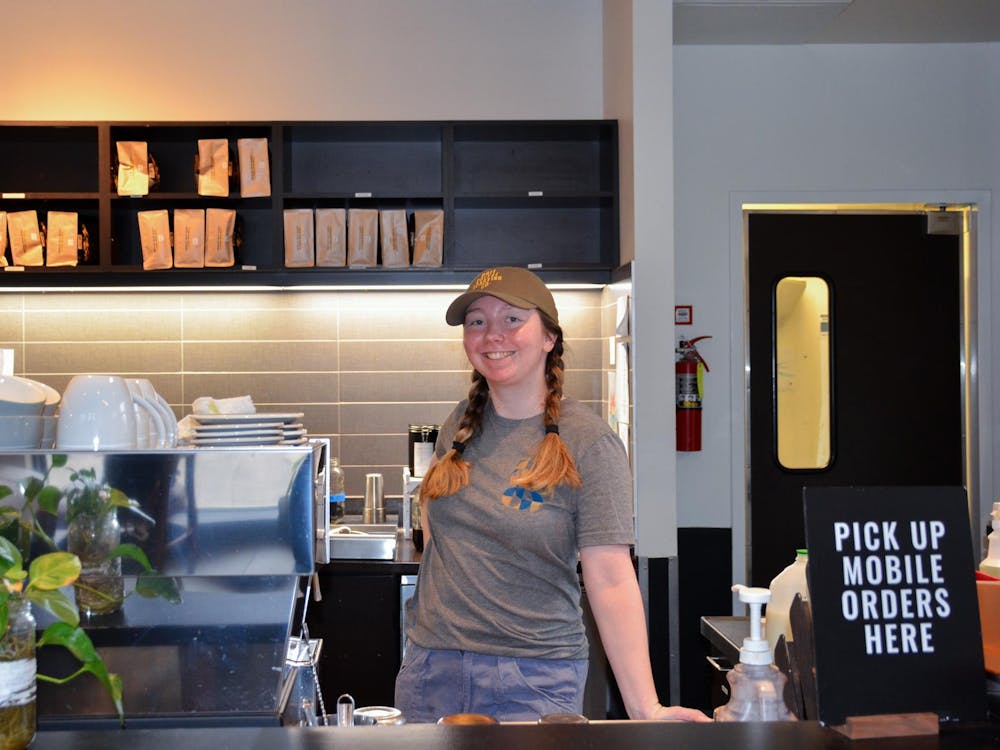For most of the 15,669 undergraduate students at the University, Nov. 8 presented the first opportunity to vote in a presidential election. Throughout the day, students descended upon the polls to exercise their civic duty.
While many students remember the 2008 election and Democratic nominee Hillary Clinton’s first run at the White House, this time students were able to cast a vote for or against.
Similarly, in 2008 president-elect Donald Trump was amidst season seven of “The Apprentice,” not necessarily considering a 2016 presidential campaign.
Second-year College student Grace Edquist voted early in the morning at University Hall, ready to submit her ballot after a long, controversial election cycle.
"It's really empowering to finally be able to take part in this election despite its controversy," Edquist said.
This year’s ballot featured the first major-party female presidential candidate. While Trump is not the first atypical businessman to run for president, many find his candidacy unprecedented. First-year College student Lindsey Page noted the historic nature of the election and plans to share her experience with future generations.
"This is my first election ever voting, and I'm really excited about it,” Page said. “I feel like in the future, my kids are going to read about this election in their textbooks, so I'm going to get to tell them that I voted in it."
Some students have not felt the same excitement of Edquist and Page. More than 60 percent of undergraduate students who support a major party candidate report choosing to do so in opposition to the other candidate, according to a recent survey conducted by The Cavalier Daily in partnership with the Center for Survey Research.
Third-year College student Hannah Swanson said voting was not all she originally expected it to be.
“It’s a little anti-climatic,” Swanson said. “I think this election has had a lot more apathy from our generation in contrast with the last election — with Obama there was a lot more support from young adults and college students.”
Fourth-year Commerce student Sam Dalton spent his election day tabling for Libertarian candidate Gary Johnson outside of the polling site at Venable Elementary School. Dalton’s focus was to encourage skeptical voters to cast their ballot for Johnson to meet the 5 percent threshold to receive automatic ballot access for the Libertarian party in statewide elections and federally-matched funds nationally.
While this is his second time voting in a presidential election, Dalton took on a more active role in this election within the Libertarian party. Moving forward, he expressed concerns for the future of civility and polarization.
“I think we go from whoever wins this election to a still very divided political system in Washington,” Dalton said. “There will still be a lot of partisan deadlock. It’s still a very polarized system right now. I think we can try to get together and support whoever wins because whoever wins has a federal mandate.”
Even though third-year College student Alexa Olsher holds dual citizenship in both the United States and the United Kingdom, she said this makes her feel more obliged to vote.
“I think it makes me feel more connected to the country I’m in and more a part of what’s going on,” Olsher said. “One person doesn’t make a difference, but the classic saying of one person and then three thousand people, that does make a difference.”
For students like fourth-year College student Madeline Culbreth, this election has been a long time coming.
“I was an intern for the Obama campaign my senior year of high school but I couldn’t vote,” Culbreth said. “I’ve been waiting four years to vote for a Democratic candidate.”
Fourth-year College student Bridget Muckian said she believes college students play a pivotal role in the election and represent the future of the country.
“I think since we are the future of America it’s important for us to use that right and plan for the future of America,” Muckian said. “[There are] adults who complain, ‘oh my god, the young people of this generation are ruining it,’ that's very false — we are the ones shaping it.”
Some students may not sport “I voted” stickers on Election Day, opting instead to vote by absentee ballot. Third-year College student Gabby Moreth said her home state’s voting record impacted her excitement to vote.
“I think for Virginia people are more inclined to vote and there are a lot more students in different organizations that are promoting people to vote,” Moreth said. “Whereas, I’m from California and I know people are a lot less invested because they realize it’s a blue state anyway.”
Regardless of their home state, many University students over the course of the election volunteered with local and national campaigns. For students like Culbreth, Election Day has been all the more rewarding to see their efforts culminate in official ballots.
“It’s been so rewarding, having campaigned for both Hillary [Clinton] and Jane [Dittmar],” Culbreth said. “Especially to see how much students care, how much they volunteer and how there’s such a reflective investment in the next four to eight years is amazing.”
With Trump’s victory, students hope to move forward into the uncharted political territory. Despite the lack of student support within a blue state and county, many are relieved to see the election season come to a close.
“It’ll be good to be over; there’s been a lot of anxiety about the outcome,” Dalton said. “I still think there will be a lot of head to head [in a] very combative environment going forward.”





